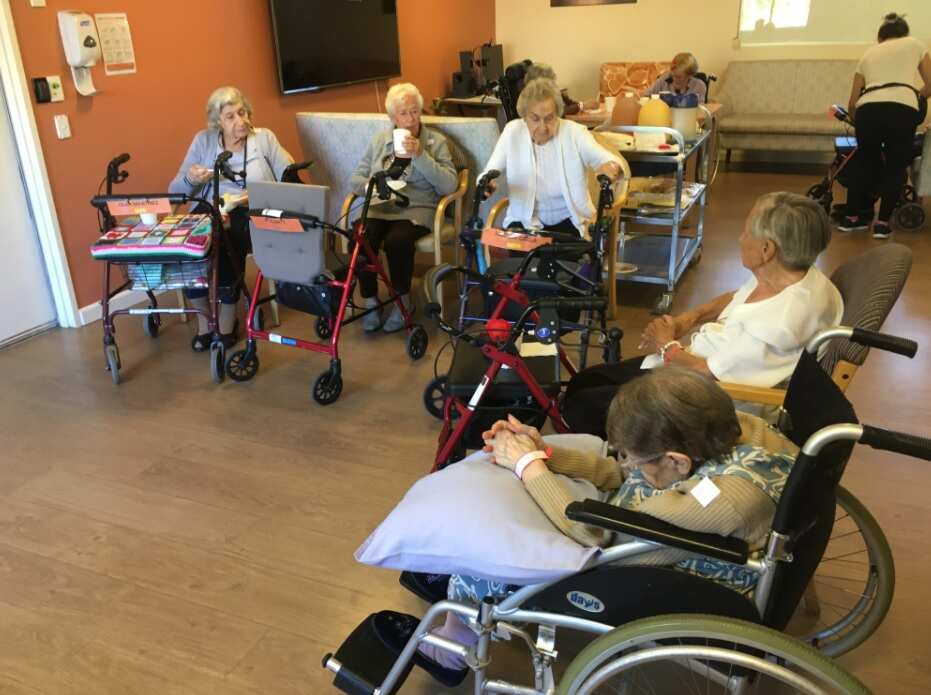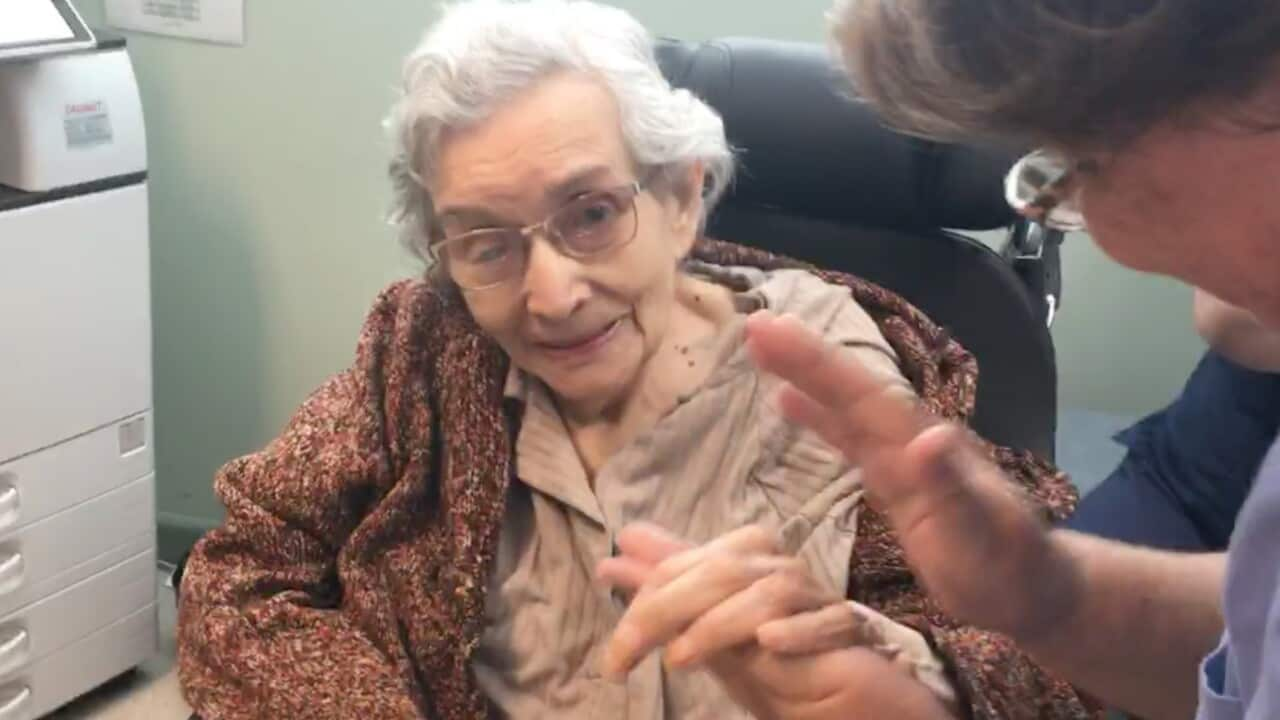Chilean migrant Inés Araya, 102, was the first resident at her Sydney nursing home to receive the first dose of the COVID-19 vaccine on Monday.
She was among a group of around 106 residents at the Residential Gardens facility to receive the jab, which for many signalled the long-awaited first step towards being able to embrace their family members, following a year of apprehension.
Ms Araya told SBS Spanish that she arrived in Australia in 1923 and remembers the impacts of the Spanish flu, the virus that claimed tens of millions of lives across the world.
Despite her advanced age and the turmoil of the past year, she remains optimistic and is "always looking straight ahead".
Highlights:
- A group of 106 residents at a Sydney nursing home received the Pfizer vaccine against COVID-19.
- The first to receive a dose of the vaccine was a 102-year-old Chilean migrant.
- Aged care staff who work at the centre say they still don't know when they'll receive their jab.
The rollout came as a "great relief" for the facility’s CEO, Marta Terracciano.
"It was quite a wait and we are very happy. It is a great opportunity for our residents to be as safe as possible,” she explained.
Ms Terracciano recalls the difficulties experienced by the residents and staff in coping with the pandemic and ensuring the virus did not enter the residence.
Like most nursing homes, visitor numbers were significantly cut during the height of the pandemic.
We had to make a tremendous effort to help residents cope with the emotional separation from their relatives.
Spanish resident, Brigida Carla, 96, arrived in Australia in 1962 and now that she has received the first dose of the vaccine, she hopes to spend more time with her family.
“Since COVID started we have not been out. Hopefully, now they'll allow me. I'm looking forward to it. Everything will happen in due course,” she said. However, not all residents received the vaccine, as six of them chose not to.
However, not all residents received the vaccine, as six of them chose not to.

96-year-old resident Brigida Carla with Residential Gardens Executive Director Marta Terracciano. Source: SBS Spanish (Esther Lozano)
Ms Terracciano explained that after informing the families of how the process would go and sending them the relevant information, some preferred their elders not to be vaccinated.
“Protection is essential, especially given the age of the residents and the chronic diseases that many of them suffer.
The more security and protection we give them, the better, but everyone has the right to choose.
AstraZeneca or Pfizer?
The rollout comes as the federal government conducts a .
The incident occurred after the government announced that the Pfizer vaccine was the preferred jab for people aged under 50.
Despite this recommendation, the government has not yet actioned changes to the distribution of vaccines, and residents at the Residential Gardens facility received the Pfizer vaccine.
According to Ms Terraciano, the medical team sent to immunise the residents administered the Pfizer vaccine, following what had been initially scheduled in the early stages of the vaccination rollout plan.
"We always knew that we were going to receive Pfizer, and this is something that the relatives wanted to know in advance. Many of them said that they would refuse the vaccine if it wasn't Pfizer," Ms Terraciano said.

A group of residents at Residential Gardens wait to receive their dose of the COVID vaccine. Source: Supplied
The residents are set to receive their second vaccine dose on May 10, but staff have not been told when they will receive their doses.
Maria Carolina Tamayo, a worker at the facility, says that she does not care which vaccine she will receive.
"I trust that all the vaccines used here (in Australia) are safe," she said.
"I have to wait for my turn, but I still don't know anything for sure."


